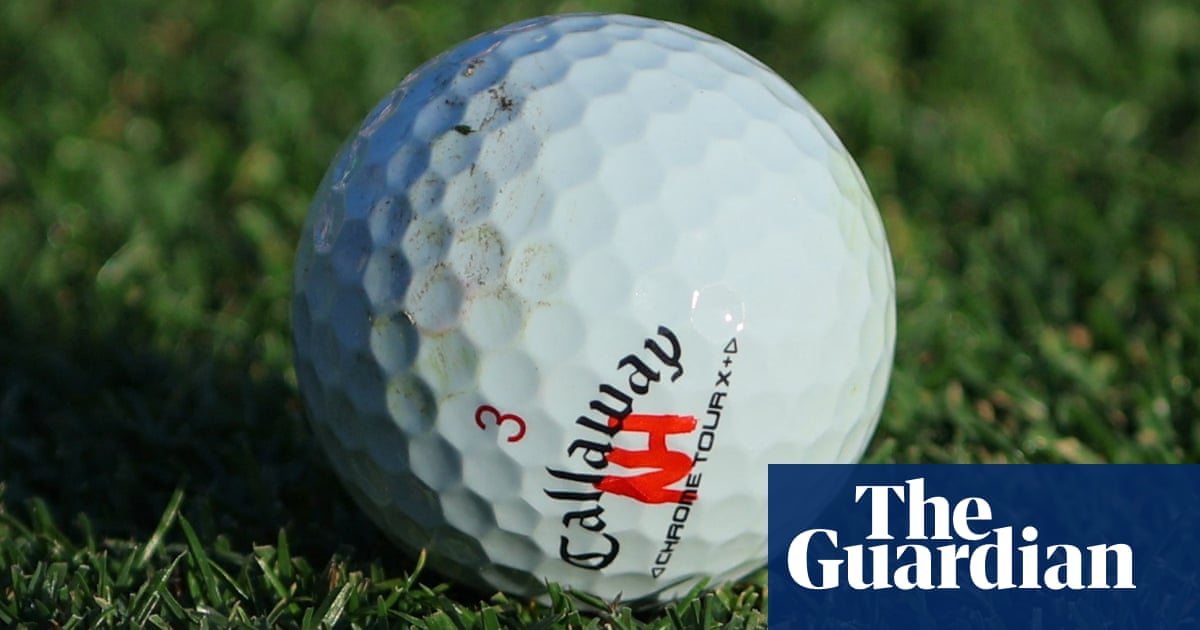With golf still trying to extricate itself from one civil war, another looms on the horizon. The PGA of America has reiterated its stance against the rollback of the golf ball, with its chief executive stating the organisation is “vehemently against” plans put forward by the sport’s rule-makers.
The R&A and USGA announced in late 2023 that all professionals will be required to use amodified golf ball from 2028. The changes would apply to amateurs from 2030. It has long been the view of many that hitting distances for leading players have become problematic, an issue that renders many traditional courses obsolete in elite competition.
There is, however, an opposing view. The PGA Tour has never supported the rollback plan. The PGA of America, a close ally of the PGA Tour, is in the same camp. While the European Tour Group has never formally expressed a view, it is likely it would stand alongside the PGA Tour. Equipment manufacturers have been firm in their opposition to the proposals.
“There’s no change in our stance,” said Derek Sprague, the PGA of America’s chief executive. “We’re certainly vehemently against the ball rollback. We’ve had great conversations with the governing bodies. We’ve had several constructive and collaborative meetings probably a number of times, three, four times. I feel really good about where we are with them and we’re going to continue to collaborate on the proposed rollbacks.”
Golf’s various organisations held talks on the subject at thePlayers Championship in March. The PGA of America was among those asking for a delay in the rollback so research numbers can be reassessed. Modifying drivers rather than golf balls is also an area that may be explored.
“They’re clear where I stand, where we stand for sure,” Sprague added. “I talk really almost monthly now with the governing bodies and we’re working to really take a deep dive on the rollback and make sure it’s the right thing.
“We’re really concerned about the 28 million golfers in this country. A number of people have reached out, a number of amateur golfers, recreational golfers have reached out and have the same concerns that we do. They’re thanking us for pushing this issue to make sure it’s well thought out, and if we can hit the pause button or change it altogether, that’s our goal.”
Golf could do without another high-profile dispute. The Saudi-backedLIV tourhas created a schism in the men’s professional game. The R&A and USGA may agree to a new timetable to keep the peace. Martin Slumbers, a key proponent of the rollback, is no longer chief executive of the R&A.
“We’re representing the 31,000 [professional golfers] that talk to the 28.1 million,” said Don Rea, the PGA of America president. “Now, whatever happens to this collaborative approach, it’s going to happen over the next six to eight years. I don’t know what’s going to happen, but I assure you, when this is all done, we’re going to stand arm in arm and say this is the decision, and this is where we’re moving forward. It might change from what it is now. I don’t know yet.
Sign up toThe Recap
The best of our sports journalism from the past seven days and a heads-up on the weekend’s action
after newsletter promotion
“I don’t want to damage the future discussions. The relationships now are stronger than they’ve ever been. Let’s see what happens but what I like is the spirit of the conversation now. No one’s telling us. We’re talking together. People are now listening, not to respond; they’re listening to learn. And I think that’s the most encouraging aspect of all the discussions are going right now. So we’ll see what happens.”
The PGA of America’s immediate responsibility, the US PGA Championship, saw grounds at Quail Hollow emptied on Tuesday due to a storm. More than three inches of rain have fallen since Friday at the Charlotte venue.
Masters champion Rory McIlroy will begin his campaign on Thursday at 1.22pm BST in a group alongside world No 1 Scottie Scheffler and defending champion Xander Schauffele. Three-time winner Brooks Koepka joins Shane Lowry and Rickie Fowler, while Jordan Spieth is in a group with Patrick Reed and Ludvig Åberg.
